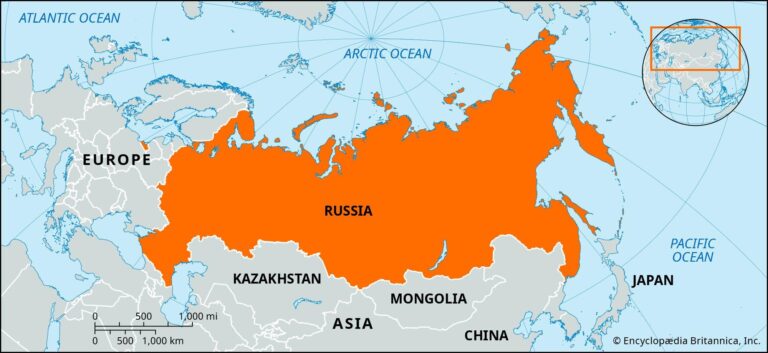The Kremlin announced that Russia is no longer bound by its previous self-imposed freeze on the development and deployment of intermediate-range missiles, signaling a significant shift in the country’s military posture. This move marks a departure from Moscow’s earlier restraint and raises concerns about escalating tensions amid already strained relations with the West. The announcement, reported by The Hill, underscores a growing uncertainty over arms control agreements and the future of strategic stability on the global stage.
Russia Ends Self-Imposed Freeze on Intermediate-Range Missiles Signals Strategic Shift
In a significant recalibration of its defense policy, Moscow has declared an end to its voluntary restraint on the development and deployment of intermediate-range missiles. This move marks a departure from Russia’s previous commitments intended to stabilize regional security dynamics, particularly in Europe and Asia. The Kremlin emphasized that this shift is a calculated response to changing geopolitical pressures and the evolving military capabilities of other global powers.
Key elements of Russia’s new strategic stance include:
- Revocation of the self-imposed ban allowing unrestricted missile testing and deployment.
- Accelerated modernization of tactical missile systems to enhance operational reach.
- Heightened emphasis on deterrence amid perceived NATO expansion.
| Missile Type | Range (km) | Deployment Status |
|---|---|---|
| 9M729 (SSC-8) | 500-5,500 | Active Development |
| RK-55 | 2,500 | Projected Reactivation |
| Iskander-M | 500 | Currently Deployed |
Kremlin Cites Security Concerns Amid Growing NATO Presence in Eastern Europe
Russia’s stance on missile deployment has taken a definitive turn as the Kremlin emphasizes the growing threat posed by NATO’s expanded military footprint across Eastern Europe. Citing explicit security concerns, Moscow has declared that it is no longer restrained by a self-imposed freeze on intermediate-range missiles, signaling a potential shift towards greater militarization along key strategic borders. This move comes amid a backdrop of escalating tensions and perceived encroachments by Western powers, which Russian officials argue undermine regional stability and their national defense posture.
The Kremlin’s announcement highlights several critical factors driving its policy reversal:
- Increased NATO troop deployments and advanced weapon systems near Russian borders
- Expanding infrastructure to facilitate rapid military mobilization within Eastern European states
- Ongoing joint military exercises that showcase strengthened alliance readiness
| Region | NATO Military Presence | Russian Response | |||||||||||||||||||||||
|---|---|---|---|---|---|---|---|---|---|---|---|---|---|---|---|---|---|---|---|---|---|---|---|---|---|
| Baltic States | Multinational battalion, air patrols | Missile system upgrades, increased drills | |||||||||||||||||||||||
| Poland | Permanent troops, missile defense installations | Enhanced missile deployment capabilities | |||||||||||||||||||||||
| Black Sea Region | Naval exercises, missile interceptors | Advanced anti-access/area denial systems |
| Region | NATO Military Presence | Russian Response | |||||||||||
|---|---|---|---|---|---|---|---|---|---|---|---|---|---|
| Baltic States | Multinational battalion, air patrols | Missile system upgrades, increased drills | |||||||||||
| Poland | Permanent troops, missile defense installations | Enhanced missile deployment capabilities | |||||||||||
| Black Sea Region | Naval
Experts Recommend Heightened Diplomatic Engagement to Prevent EscalationIn response to recent developments, international experts emphasize the urgent need for intensified diplomatic efforts to mitigate risks associated with the Kremlin’s decision. The dismantling of Russia’s self-imposed moratorium on intermediate-range missiles raises alarms about increased regional tensions and the potential for accelerated arms competition. Analysts advocate for reopening channels of communication to de-escalate misunderstandings and prevent destabilizing military buildups that could ripple beyond immediate conflict zones. Key diplomatic focus areas include:
Final ThoughtsAs Russia signals a departure from its previous restraint on intermediate-range missile deployments, the move marks a significant shift in the geopolitical landscape and raises fresh concerns over regional and global security. Observers will be closely monitoring subsequent developments and international responses as tensions surrounding missile proliferation enter a new phase. |




